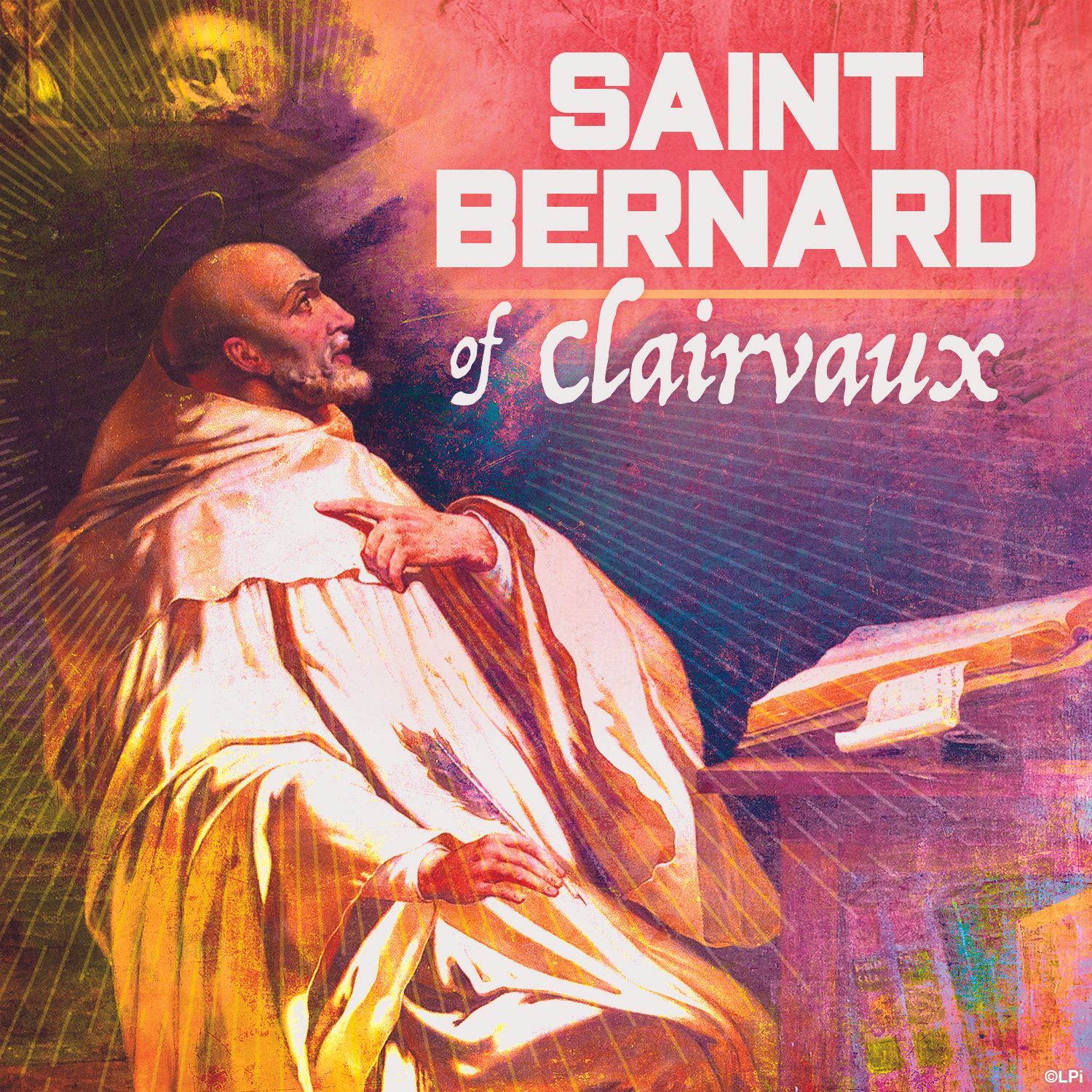St. Bernard of Clairvaux

Bernard was born in 1090 at Fontaines les Dijon
Bernard was born in 1090 at Fontaines les Dijon, the family castle near Dijon, Burgundy, the third son of seven children. He was sent to study at Chatillon and after a frivolous youth decided, on the death of his mother, to pursue a religious life. In 1112, he persuaded thirty-one of his friends and relatives (including four of his brothers) to go with him to Citeaux, which had been founded in 1098, the first Cistercian monastery, which observed a strict interpretation of the Benedictine rule. They were most welcomed by the abbot, St. Stephen Harding. In 1115 Bernard was sent with twelve monks to found a Cistercian house at Langres, with Bernard as the abbott. Though there were initial difficulties because of Bernard's strict discipline and austerities, his holiness soon attracted scores of disciples. The name was changed from the Vallee d'Absinthe to Clairvaux and was to become the mother house of some sixty-eight Cistercian monasteries established by its monks. Bernard soon became involved in matters outside the monastery as his reputation for learning and wisdom spread, and he soon was one of the most powerful influences in Europe, consulted by rulers and Popes. He supported the legitimacy of Pope Innocent II's election in 1130 against the claims of antipope Anacletus II and successfully led the struggle that led to Innocents's acceptance as Pope. Bernard was the leader in convincing the Lombards to accept Lothaire II as Emperor. In 1140 Bernard began preaching in public and was soon regarded with awe for the miracles attributed to him and for the eloquence of his preaching, for which he was acclaimed as the greatest preacher of his times. He was the leader in the attacks on Abelard, questioning his rationalism and extreme exaltation of human reason and opposed it with his own certitude of faith and reliance on traditional authority. He was instrumental in having Abelard condemned at the council of Sens and forcing him into retirement. In 1142, Bernard arbitrated the disputed succession to the see of York in England, and in the same year he saw the abbot of the Cistercian Tre Fontane monastery in Rome, whom he had brought to Clairvaux as a postulant, Peter Bernard Paganelli, elected Pope as Eugene III. In 1145 the papal legate asked him to go to Languedoc in southern France to combat the Albigensian heresy, and his preaching was most successful, though not enduring. In 1146 he helped stop a series pogroms in the Rhineland, and in the same year, at Eugene's request, he preached a crusade against the Turks, who had captured Edessa on Christmas in 1144. He roused all of Europe to the Second Crusade, headed by Emperor Conrad III and Louis VII of France, which was to end in disaster - a fate he blamed on the wickedness and lack of dedication of the crusaders. In 1153 Bernard left Clairvaux to effect a peace between the duke of Lorraine and the inhabitants of Metz, which had been attacked by the duke. He was stricken on his return and died at Clairvaux on August 20 of that year. Bernard is considered the second founder of the Cistercians, and from the time at twenty-five when he became abbot of Clairvaux he soon became the domiant influence in the religious and political sphere of Western Europe. His influence during the last forty years of his life was enormous and he was prominently involved in practically every major event of those years. His mystical writing, especially De Diligendo Deo, one of the outstanding medieval mystical works, formed the mysticism of the Middle Ages, and his other writings, his more than three hundred sermons, his treatise De Consideratione, written for Pope Eugene's guidance, some five hundred known letters, his reflections on Scripture, and his deep devotion to Mary and the Infant Jesus all had a profound effect on Catholic spirituality. Called the Mellifluous Doctor, he was canonized in 1174, was formally declared a Doctor of the Church in 1830, and is considered the last of the Fathers of the Church.
(From the Dictionary of Saints, Copyright 1980 by John J. Delaney)